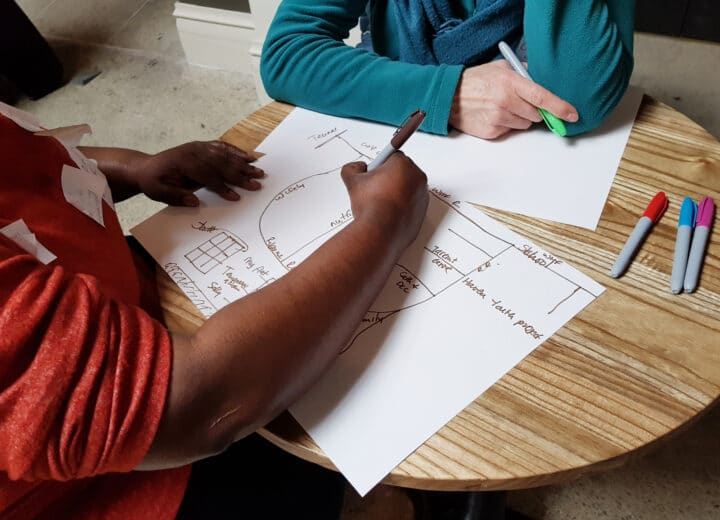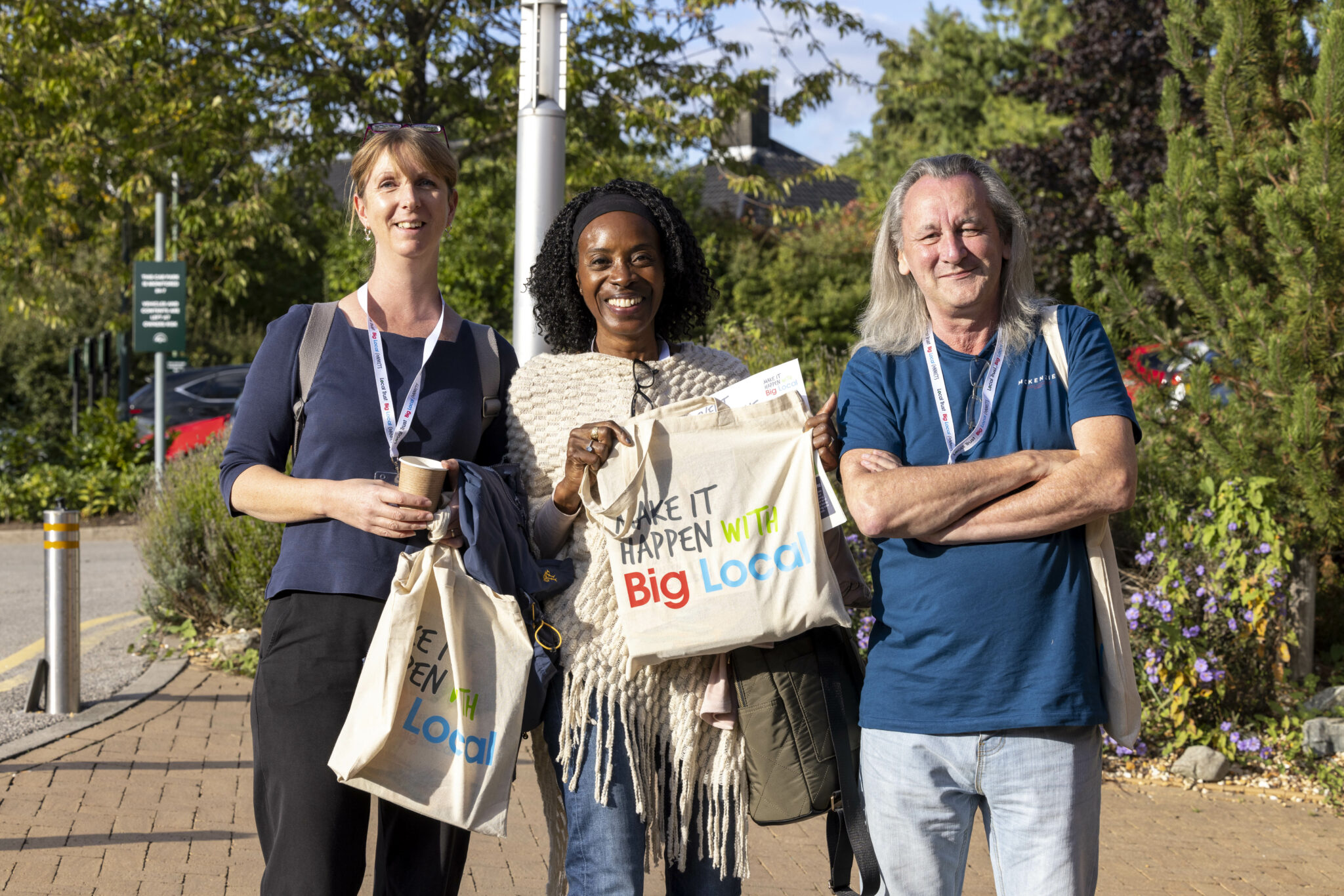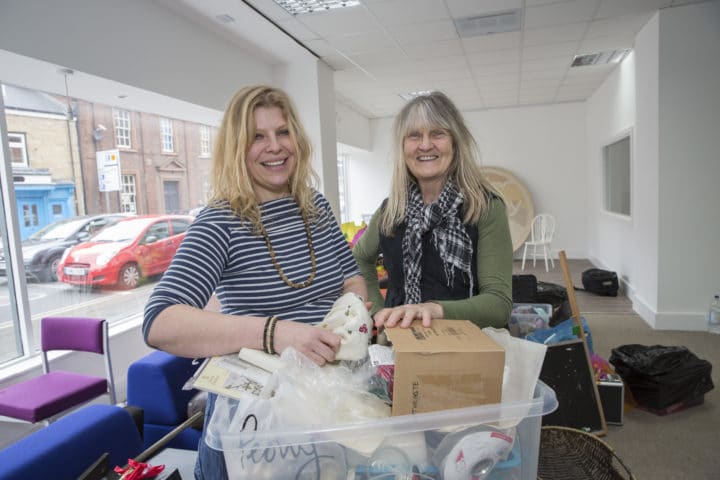Research: Communities responding to COVID-19
Commissioned by Local Trust, this in-depth research explored how communities across England responded to, and recovered from, COVID-19
The study was undertaken by a coalition of researchers, led by The Third Sector Research Centre (TSRC) at the University of Birmingham. It explored how different communities fared during and after the COVID-19 pandemic. The findings, alongside multiple outputs from the research, provide an insight into the impact of crisis on communities, and the factors that shaped their resilience, response and recovery.
One pandemic, many responses
The final report in our research explored how, within the variety of responses to the pandemic, some communities were able to respond in a more comprehensive, strategic and inclusive way than others, and the multiple and complex factors that underpinned this.

The value of communities responding to crises is well-recognised, but it is rare to have the opportunity to assess it while it is happening. The COVID-19 pandemic enabled us to look at how communities reacted to, coped with and recovered from a major crisis that impacted almost everybody
We wanted to understand the help communities were best placed to give, how they made it happen, and how it might be supported. The research also drew out possible differences between the experiences of communities, for example those supported through Local Trust programmes and those not, and those in ‘left behind’ areas – places that rank highly on the indices of multiple deprivation and lack social infrastructure.
We were also looking forward and wanted to understand the support communities would need once the crisis passed, insight which could inform the future use of contingency funds.
The research was expected to end in March 2021, but was extended due to the evolving nature of the pandemic. The phases of the research were: phase one (April to September 2020), phase two (October 2020 to- March 2021), and phase three (April 2021 to March 2022).
The research sought to answer the following questions:
The project involved extensive qualitative research to capture real-time learning and fieldwork in the study areas. Desk research included policy and literature reviews, analysis of social media and other material relevant to community responses. Fieldwork was based on regular, individual and group learning conversations with residents, community groups, local activists, community workers and stakeholders.
The research methods were revised following the extension of the research and in response to the changing context within communities. This saw the introduction of thematic workshops and reduced the regularity of learning conversations.
For more detail about the research methods, see the method notes below:
The study areas were selected because of pre-existing, trusted relationships between community members, researchers and established research programmes, ensuring the research provided immediate outputs and avoided placing additional burdens on the communities involved.
The 26 study areas were located across all regions of England with diverse characteristics, from rural villages to urban estates. They were places where:
- residents had been supported over the long term to build civic capacity, and make decisions about resource allocation through the Big Local programme
- residents had received other funding and support, (through the Creative Civic Change programme administered by Local Trust)
- areas had been identified as ‘left-behind’, because communities had fewer places to meet, lacked digital and physical connectivity, and there was a less active and engaged community.
Study areas in detail
| Location | Region | Local Authority | BL* | CCC** | 'Left Behind' neighbourhoods*** |
|---|---|---|---|---|---|
| Barrowcliff, Scarborough | Yorkshire & Humber | North Yorkshire County Council | ♦ | ||
| Bilston East, Wolverhampton | West Midlands | City of Wolverhampton Council | ♦ | ||
| Birchfield, Birmingham | West Midlands | Birmingham City Council | ♦ | ♦ | |
| Brookside, Telford | West Midlands | Telford and Wrekin Council | ♦ | ♦ | |
| Catton Grove, Norwich | East of England | Norwich City Council | ♦ | ||
| Conniburrow, Milton Keynes | South East | Milton Keynes Council | ♦ | ||
| Corby, Northamptonshire | East Midlands | Northamptonshire County Council | ♦ | ♦ | ♦ |
| Darlaston South, Walsall | West Midlands | Walsall Council | ♦ | ||
| Ealing, London | London | Ealing Borough Council | ♦ | ||
| East Northampton, Northampton | East Midlands | Northamptonshire County Council | ♦ | ♦ | |
| Enfield, London | London | Enfield Borough Council | ♦ | ||
| Firs and Bromford, Birmingham | West Midlands | Birmingham City Council | ♦ | ♦ | |
| Grassmoor and Hasland, North East Derbyshire and Chesterfield, | East Midlands | Derbyshire County Council | ♦ | ||
| Gravesham, Kent | South East | Kent County Council | ♦ | ||
| Grimsby, North East Lincolnshire | North East | North East Lincolnshire Council | ♦ | ||
| Huntingdonshire, Cambridgeshire | East of England | Cambridgeshire County Council | ♦ | ||
| Kensington,, Liverpool | North West | Liverpool City Council | ♦ | ||
| Knowle West, Bristol | South West | Bristol City Council | ♦ | ||
| Lawrence Weston, Bristol | South West | Bristol City Council | ♦ | ||
| Oswestry, Shropshire | West Midlands | Shropshire Council | ♦ | ||
| Radstock and Westfield, Bath and North East Somerset | South West | Bath and North East Somerset Council | ♦ | ||
| Revoe, Blackpool | North West | Blackpool Borough Council | ♦ | ♦ | |
| Thanet, Kent | South East | Kent County Council | ♦ | ♦ | ♦ |
| Thurrock, Essex | East of England | Thurrock Borough Council | ♦ | ||
| Westfield, Sheffield | Yorkshire & Humber | Sheffield City Council | ♦ | ||
| Whitley Bay, North Tyneside | North East | North Tyneside Borough Council | ♦ | ♦ |
*area in Big Local programme
**area in Creative Civic Change programme
*** area identified as ‘left-behind’
Angus McCabe (TSRC) lead a team as part of this work.
The wider research team included: Asif Afridi (brap); Sarah Boiling (Sarah Boiling Associates); Angela Ellis Paine (TSRC); Helen Harris (TSRC); Eleanor Langdale (Renaisi); Rob Macmillan (Sheffield Hallam University); Emma Morgan (WSA Community Consultants); Paul Morgans (independent filmmaker); Siobhan Sadlier (brap); Amanda Smethurst (Amanda Smethurst Consultancy); Wendy Sugarman (WSA Community Consultants); Richard Usher (Just Ideas Sustainable Solutions); Phil Ware (TSRC); Mandy Wilson (Mandy Wilson Ltd).



